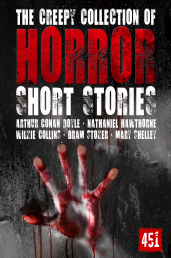What better way to process these uncertain times than with an escape into science fiction? Out now in the UK, and available later this month in the US, A Dying Planet gathers the very best of apocalyptic – and post-apocalyptic – fiction. Tales from classic authors are complemented by fascinating new and recent stories, probing the concerns and problems of a modern world at risk. With themes like climate change, pandemics, extensive wastelands, alien destruction, overpopulation and dwindling resources, these stories explore, not always without optimism, how these issues could affect worlds and their inhabitants, and what might happen when it’s too late. A fitting anthology for a time of global crisis, authors from the book offer insight below about the inspiration behind their stories:
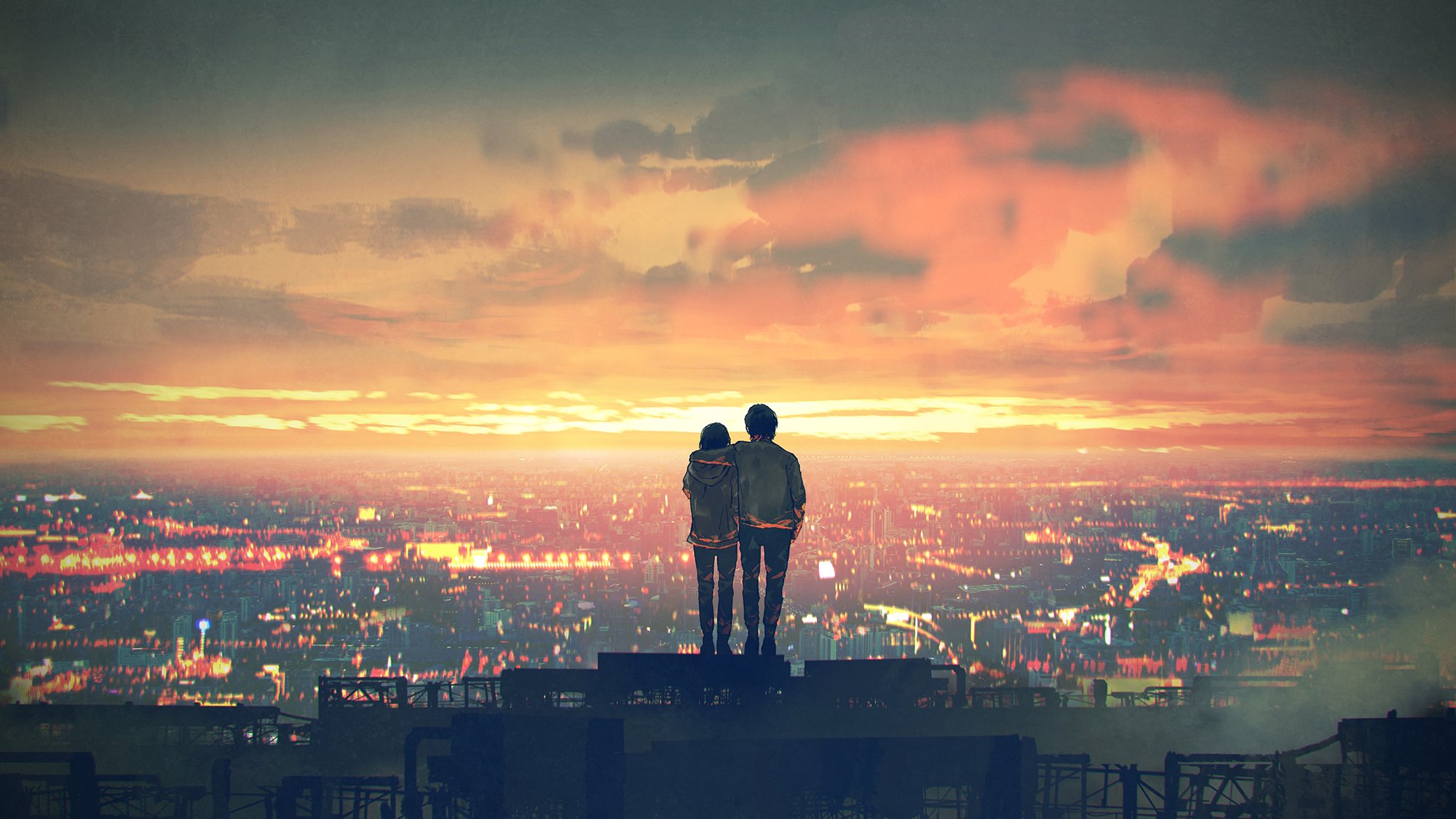
What was the inspiration behind your story in 'A Dying Planet'?
Barton Aikman – How to Reclaim Water
I’ve lived in California my whole life, and the record-setting droughts we’ve had in recent years have been an interesting and unsettling experience. We even ‘leased’ water from the Southern Nevada Water Authority, which to me sounds so odd and terrifying. I started thinking about natural resources and authority in times of crisis. How will ideologies clash when we’re faced with a dire situation like resource depletion?
V.K. Blackwell – The Hollow Journal
‘The Hollow Journal’ was inspired by the concept of generation starships and wondering what happened to the people left behind on Earth after those ships departed. I focused on the effects of climate change, because that future may not be as distant as we hope. I wrote a message I feel is important – we’re all responsible for each other and the Earth, now and in the future. We can’t control everything, but we should still choose to be better.
Steve Carr – Power Grid
I have a near-phobic fear of the loss of electrical power. In ‘Power Grid’ I tied that fear to what is happening to our planet in regards to climate change.
Brandon Crilly – Rainclouds
Someone casually commented about ‘chasing rainclouds’ and it got my mind churning. Chasing rainclouds led to ‘what if there wasn’t any rain’, which led to ‘let’s set it somewhere other than Earth’, and the ideas continued from there. I’m big into found family, too, so I went with that mix of characters instead of a traditional Lost in Space set-up – not that there’s anything wrong with the Robinsons!
AnaMaria Curtis – A Quiet, Lonely Planet
One morning, the smell of a worn, muddy path made me really homesick for our family garden. I let that feeling marinate for a while until I got an image of someone walking up a hill to a shed on an alien planet, walking a similar mud path, and that gave me the idea to write something about homesickness in the context of Earth being completely destroyed. I even managed to work the gardening back in!
Megan Dorei – Acrylics for a Wasteland
I didn't have much of an idea to start, just a vague image of the opening scene, but wisps of themes and inspiration came together as I pursued. Body horror. The struggle between survival and freedom. Art as a weapon. The hope that something small and pure can survive something vile and oppressive. And dubstep.
Stephanie Ellis – Milking Time
In post-apocalyptic scenarios you rarely see the messy or true nature of the biological female. Menstruation, menopause and everything in between is glossed over. I thought about breast feeding because of the value put on this milk, it is actually ‘liquid gold’ for an infant and in a doomed future, wouldn’t something like that become a commodity? This in turn makes the woman nothing more than a creature to be farmed and it is that idea I wanted to explore. All my children are young adults now but all were breastfed so I know exactly what that bond is like. (Please note this is not a breast v bottle argument, all mothers need to do what is best for them and rightly so.)
Gini Koch writing as Anita Ensal – The Last Day on Earth
I was listening to ‘Tears for Fears’, and the song ‘Last Days on Earth’ came on. It’s a love song and the chorus is, ‘I told you, I’d hold you, ’til the last day on Earth.’ That made me think about what it would actually be like for a devoted couple to face the real end of the world. The story came to me, and I tried to write it in such a way that anyone could see themselves, or their parents or grandparents, in it.
E.E. King – The Rediscovery of Plants
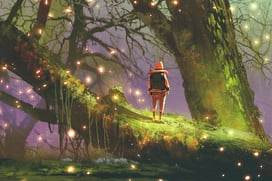
I was driving to a surrealistic sculpture garden hidden deep in the rainforest (Las Pozas in Mexico) with a movie star and her guru. The movie star, my friend Crystal, is glamorous, gorgeous, and sees everything through rose-coloured lenses. Marvelling at her ability to see the good in everything, I started thinking about what it would be like if a being could literally only see and hear pleasant light and sound waves. What would the biology of such a creature be? Plants have evolved for much longer than humans. They can supply their own food and send nutrients and messages though a symbiotic association between fungi and their roots. A plant sees, feels, breathes and reasons with its entire body. We move away from problems, whereas plants are obliged to solve problems – get nutrients, defend themselves, reproduce or communicate – without movement. When I wrote ‘The Rediscovery of Plants’ I decided to write it from the point of view of a mother, who was also a scientist, discovering that her daughter was turning into a plant. It’s odd that such a despairing story should have come from such a happy place, and really the idea I had at first was that despite our destruction of the planet, plants will come back to save the day.
Michael Kortes – The Sun Takers
‘Sun Takers’ was born of its opening line. At the time I was searching for an opening hook which would draw a reader in. I thought of someone diving through a steel door just after it was blown open. What would be on the other side that was worthy of such protection? Who would risk their life to take it? And what time and place might the world be in that this had some sort of normalcy?
Raymond Little – Scream and I'll Come to You
‘Scream and I’ll Come to You’ is an examination of the relationship between a mother and her child in a post-apocalyptic world that poses the question: how far will a loving parent go in the name of mercy? The idea came to me during a debate in the UK over euthanasia, and the title is a respectful nod to M.R. James’ classic ghost story, ‘Oh, Whistle, and I’ll Come to You, My Lad’.
Ken Liu – Mono no aware
‘Mono no aware’ was written as a meditation on the differences between Go and Chess as games, and what version of heroism they embody respectively.
Thana Niveau – And Fade Out Again
I love the ocean and I will never turn down a chance to write about it. ‘And Fade Out Again’ originally appeared in Great British Horror 3: For Those in Peril. Like many, I am terrified of what climate change promises for the future of life on this planet. There’s a world of horror in store for us and rising sea levels are just the tip of a massive iceberg. This one is a horror/SF hybrid, set in a far-future drowned Earth. The Eden Project (a fantastic day out – highly recommended!) has been transformed into an underwater city and 3D printers work day and night to construct more corridors, rooms and habitats for what remains of the human race. I wanted to combine several elements – climate change, technology and an alien world (the sea).
John B. Rosenman – Free Air
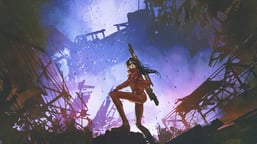
My major inspiration for ‘Free Air’ was the terrible and perhaps fatal environmental health of this planet. It’s possible that climate change or global warming has already reached a crisis or tipping point from which Mother Earth cannot recover. Or perhaps she can recover, but only if we die. Are we doomed or not? This is a much debated topic, and I decided to take the current situation to one possible extreme. What would it be like if there simply wasn’t enough air for us to breathe, if air was as valuable as gold and we had to walk around with tanks strapped to our backs, taking a tight breath only once every 10.8 seconds? What if the very air we breathe was closely monitored? The title ‘Free Air’ is an ironic warning. Nothing can be ‘free’ forever if we waste it and ignore the warning signs. This planet is our only home and we must cherish and protect it before it’s too late.
Sydney Rossman-Reich – A Line Cutting Canvas
I was inspired to write ‘A Line Cutting Canvas’ after reading reports on the impact of automation on work and job security. I wondered about what type of relief program a government might create to combat drastic shifts in workforce opportunity and how artists would fit into this new world order. I did not want to paint an entirely cynical picture, as I always endeavour to be optimistic about the future – I hope I succeeded.
Elizabeth Rubio – What Treasures We Store on Earth
I think a lot about climate change. The changes that have already happened. The changes that are yet to come. The ways we adjust and adapt. No matter how much life changes, people still hope and dream and love. They still live out their lives. I wanted to explore the larger changes society might undergo through that very small, individual family lens.
Zach Shephard – The Final Chapter of Marathon Mandy
Back in 2012, while still experimenting with my style, I became concerned that some of my stories started too slowly. So I decided to write something that moved at a breakneck pace from the first sentence, and jotted down some opening lines: ‘And then they told me that if I stopped running, I would die. So I ran.’ I had no clue what the story would be about at the time, but I used the intro as a prompt. A few weeks later, I had ‘The Final Chapter of Marathon Mandy’.
Shikhandin – Communal
I often wonder whether humans are indeed superior to other life forms, other sentient beings in our planet, just because we possess cognitive thinking and skills, or rather what we believe are cognitive thinking and skills. What if another home-grown species decided to up the game? And what if they absorbed us? We would quickly evolve. But is that really so bad? It's difficult to say exactly when the ideas and questions coalesced into this story. The story went through a couple of transformations before becoming ‘Communal’. I'm grateful to Francesco Verso, editor of Future Fiction, for his help.
Alex Shvartsman – Ambassador to the Meek
I've always wondered about those Star Trek teleporters: what are the long-term health effects of your body being broken into molecules and reconstituted elsewhere? I'm betting nine out of ten doctors don't recommend this mode of travel (and the tenth is Dr. McCoy.) Also, I'm fascinated by how a global pandemic might affect a group that chooses to isolate itself from most of society, such as the Amish or the type of isolationists described in my story. Who knew that instead of writing ‘Ambassador’ I could've just waited for 2020 to find out?
Kristal Stittle – Decimate
I find that many global problems can be traced back to overpopulation. I started to wonder, what if the world’s governments actually decided to do something about it? What might they agree upon, and how would people react? What I came up with, is the story told in Decimate.
Rebecca E. Treasure – Whose Waters Never Fail
I was camping with my family in Texas Hill Country, and one evening I took a walk down by a lake. The water was beautiful and the sunset reflecting off the water made it look like molten lava. I wrote the opening scene to this story that night. The rest came from an article in Nature about the Yellowstone caldera and the Ring of Fire in the Pacific.
Francesco Verso – Two Worlds
Years ago, I read about a Seed Vault on the Svalbard Island (Norway) built in view of a possible environmental catastrophe. So I’ve imagined what would happen if that scenario came true. ‘Two Worlds’ is set in a remote future, where ‘Chimeric’ development has taken human evolution on a strange path, leading to the advent of hybrid species that possess (in their modified DNA) genes coming from birds and fishes. The legend of a mysterious ‘Tower of Seeds’ – a long-forgotten place – will rekindle new hopes and the desire to restore the ancient environmental balance with planet Earth.
Marian Womack – Black Isle
After returning from the Clarion Writers’ Workshop in San Diego in August 2014, I went on a little holiday with my husband and my son to a part of Scotland I didn’t know. I had been a student at Glasgow University for four years, but I had never ventured up to the Black Isle, a secluded spot next to Inverness with a very particular natural setting, extremely rich in birdlife and marine life. We stayed in a cottage, and everything in the story, the Red Castle, the Victorian-built isthmus, was there. Twice a day, the tide receded over the marshes, and the fauna changed completely. It was utterly magical. Lots of my work deals with the loss of natural places, and I found myself compelled to write about this beautiful place, about a time in the near-future where environments were recreated rather than kept.
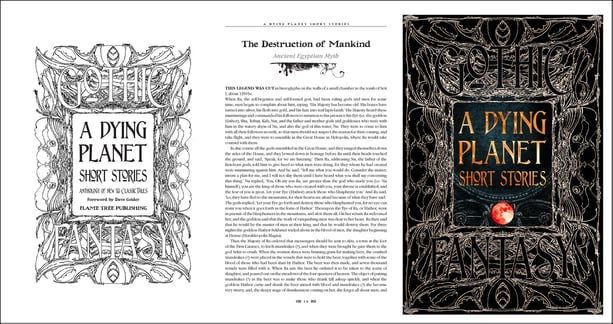
You can read these stories and more in 'A Dying Planet Short Stories', which is available to order through our website here!
Links
- Check out the full author lists for A Dying Planet and Detective Thrillers here.
- Browse the full collection of anthologies here.
- Did you miss our previous anthology Q&As? Take a look at what the Epic Fantasy and Detective Mysteries authors had to say about their stories in the collections here and here.
Images courtesy shutterstock.com




